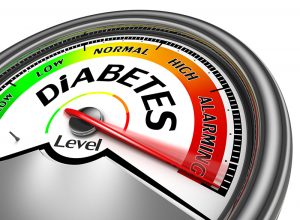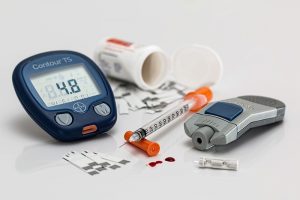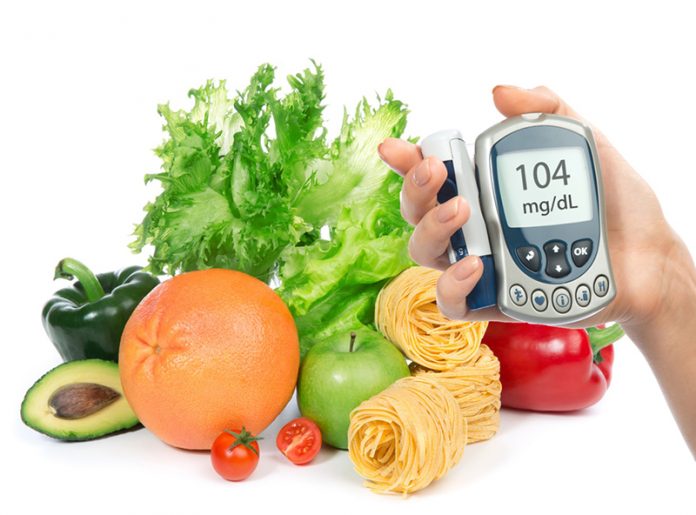Diabetes is a lifelong condition that causes a person’s blood sugar level to become too high and occurs when the pancreas produces very little or no insulin, or when the body does not respond appropriately to insulin. As yet, there is no cure. People with diabetes need to manage their disease to stay healthy.
There are two main types of diabetes
- Type 1 diabetes where the body’s immune system attacks and destroys the cells that produce insulin
- Type 2 diabetes where the body doesn’t produce enough insulin, or the body’s cells don’t react to insulin
Type 2 diabetes is far more common than type 1. In the UK, around 90% of all adults with diabetes have type 2.
During pregnancy, some women have such high levels of blood glucose that their body is unable to produce enough insulin to absorb it all. This is known as gestational diabetes

Pre-diabetes
Many more people have blood sugar levels above the normal range, but not high enough to be diagnosed as having diabetes.
This is sometimes known as pre-diabetes. If your blood sugar level is above the normal range, your risk of developing full-blown diabetes is increased.
It’s very important for diabetes to be diagnosed as early as possible because it will get progressively worse if left untreated.
When to see a doctor

Visit your GP as soon as possible if you experience the main symptoms of diabetes, which include:
- feeling very thirsty
- urinating more frequently than usual, particularly at night
- feeling very tired
- weight loss and loss of muscle bulk
- itching around the penis or vagina, or frequent episodes of thrush
- cuts or wounds that heal slowly
- blurred vision
Type 1 diabetes can develop quickly over weeks or even days.
Many people have type 2 diabetes for years without realising because the early symptoms tend to be general.
Causes of diabetes
The amount of sugar in the blood is controlled by a hormone called insulin, which is produced by the pancreas (a gland behind the stomach).
When food is digested and enters your bloodstream, insulin moves glucose out of the blood and into cells, where it’s broken down to produce energy.
However, if you have diabetes, your body is unable to break down glucose into energy. This is because there’s either not enough insulin to move the glucose, or the insulin produced doesn’t work properly.
Although there are no lifestyle changes you can make to lower your risk of type 1 diabetes, type 2 diabetes is often linked to being overweight.
Living with diabetes
If you’re diagnosed with diabetes, you’ll need to eat healthier and take regular exercise and carry out regular blood tests to ensure your blood glucose levels stay balanced.
You can use the BMI healthy weight calculator to check whether you’re a healthy weight.
If you would like to make an appointment to see a doctor about diabetes or if you should have any other query then please contact Phyathai Sriracha Hospital on Tel: 087 – 100 – 0990 Email: [email protected] www.phyathai-sriracha.com










